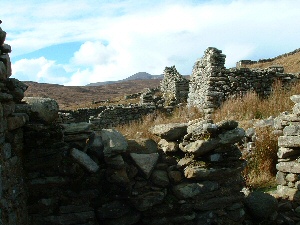‘Romantic Ireland’s dead and gone,
It’s with O’Leary in his grave.’
John O’Leary was born in
After the failure of the 1848 Rising O’Leary was involved in a plot to rescue the leaders from Clonmel Gaol and was himself imprisoned on September 5th, 1849. When
He travelled to
O’Leary was briefly editor of The Irish People in this period.
In 1865 O’Leary was arrested in
‘Romantic
… the reason we are uploading this story.
O’Leary published Young Ireland: The Old and the New (1885); How Irishmen should feel (1886) [from which the extract is taken] and Recollections of Fenians and Fenianism in 1896. The following is from it …
‘It seems a very simple thing to say that the first thing an Irishman should feel is that he is an Irishman. But, unfortunately, the matter is not so plain after all, and certainly not plain to all, for there are many men, not only born in Ireland, but whose ancestors have been there for generations, who foolishly, not to say wickedly, fancy that they are, after all, only some sort of Englishmen.
And this brings me to my second point. We should all feel that every Irish born man, and every man born of Irish parents out of
Not by threats by any class of our countrymen, but by holding forth the hand of hope and forgiveness to all, can the goal of liberty be ever safely won…
Being Irishmen and feeling the brotherhood of Irishmen, what more should we feel? Well, perhaps there might be no pressing need to feel more than was involved in what I have already required of you, if
If you love Ireland and try to serve her then I have no fault to find with your feelings, what ever may be the outcome of them, and little doubt but your opinions will, in the long run, be right, and your actions mostly just and always fair. So much will make you in any intelligible sense of the word good Irishmen… We cannot all be heroes, but we can all be hero-worshippers. Too few of you probably have been given the high heroic qualities of the Manchester Martyrs, and to none of you probably will ever be afforded the supreme opportunity of showing them, but I am happy to feel that you all cherish in your heart of hearts the memory of these simple but sublime men; and as long as that and not another and a lower is your ideal, there will be hope for Ireland and her future.
This allusion to the noble three leads me naturally to go on to talk of the higher things you should all aspire to, even though few should attain to them. Here were men who loved Ireland indeed, and served her in the measure of their humble opportunities and abilities, but who loved self so little as to gladly yield up their young lives on the altar of their country’s freedom, and, in so doing, and in the manner of doing, have served her as probably no others have since ‘Lord Edward died, and Wolfe Tone (and Emmet) sunk serene…’ I do not at all mean to convey to you, by anything I may say or seem to say here, that you should in the least cease to hate England, or perhaps rather English rule in Ireland, but I do say distinctly, what I feel intensely, that you will not, in the long run, either serve Ireland or hurt England by sin or crime. You must not say the thing that is not, in the vain hope that you are throwing dust in the eyes of the enemy, and above all you must not slay, save in the way that has been legitimised in all the ages and consecrated in many.
‘For how can men die better
Than facing fearful odds,
For the ashes of their fathers,
And the temples of their Gods?’
It is not fashionable now to be other than constitutional in words, however people may be in deeds. Terpora mutantur nos et mutamur in ilis, which, roughly translated, means that the times have changed and too many have changed with them. We are all for peace with
Davis talks of history, or rather a ballad history, as the source from which you should draw your inspiration, but I care not how you get your feelings, so they be the right ones, and to me the supremely right one is, that we should be willing to live for Ireland, even though our life were one long agony, and to die for her, though our death were one long martyrdom”.
… Young Ireland series ? …
